Premium Only Content
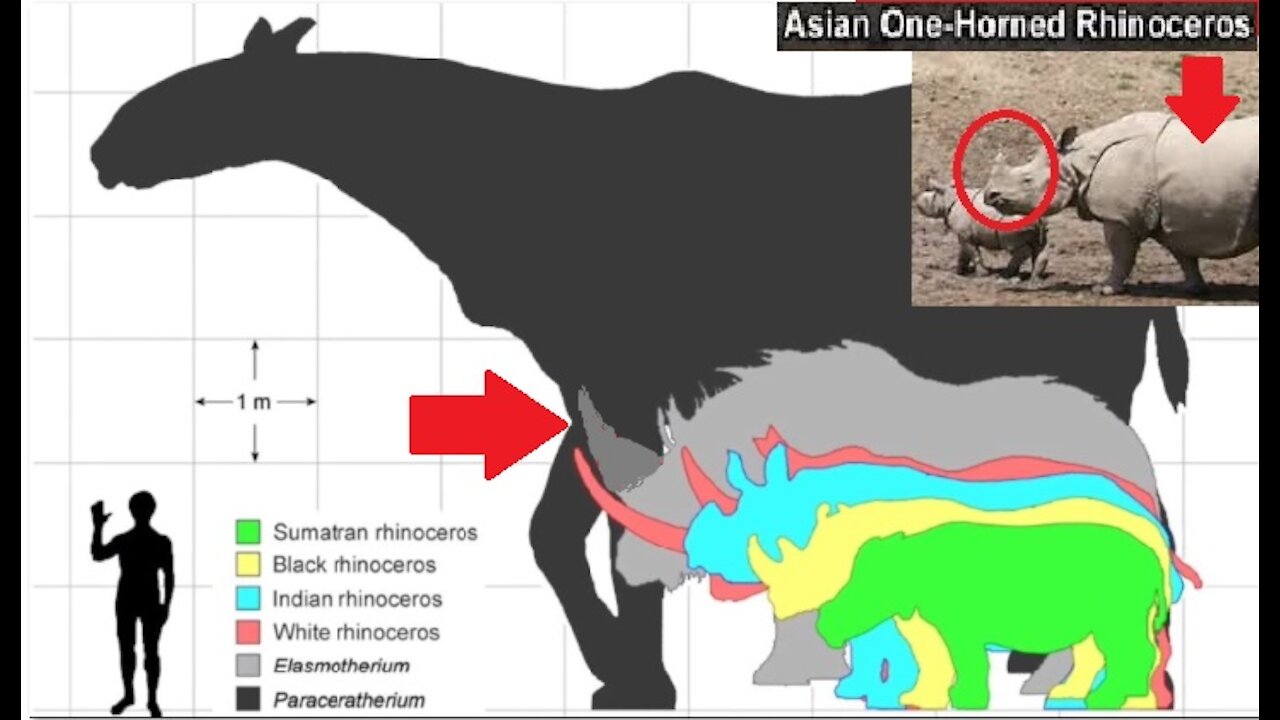
The Bible And Unicorns 🦄🤠🤦♂️😂 | 8:08 | "NathanH83" Video (Given Permission To Re-Upload)
"Unicorns are mentioned in the Bible nine times in the books of Numbers, Deuteronomy, Job, Psalms, and Isaiah and have become one of the “problematic” creatures referred to in Scripture. From our 21st-century understanding as presented in books and movies, we have come to think of this creature as a beautiful, magical, mythical horse. Thus, it has become an excuse for scoffers to dismiss the Bible as a book of fairy tales. However, a closer examination of the word’s origin and original English definition may give us a different picture.
The very first edition of Noah Webster’s dictionary in 1828 lists “unicorn” with the following definition: “an animal with one horn, the monoceros. This name is often applied to the rhinoceros.” Notice that this definition says absolutely nothing about a horse, or a horse-like animal, or Greek mythology, or a mythical or fictitious creature. This definition simply states that this is a name that is often applied to the rhinoceros.
Yet, our present-day understanding of a rhinoceros is that of a two-horned animal. If we look up the word “rhinoceros” in the same 1828 dictionary, it defines rhinoceros as: “A genus of quadrupeds of two species, one of which, the unicorn, has a single horn growing almost erect from the nose. This animal when full grown is said to be 12 feet in length. There is another species with two horns, the bicornis. They are natives of Asia and of Africa.” According to Noah Webster, back in the early 1800s, it was understood that there were two species of the rhinoceros. The one-horned species was called unicorn and the two-horned species was called bicornis.
Still today, the scientific name of the Asian one-horned rhinoceros is rhinoceros unicornis, and the scientific name for a two-horned rhinoceros is diceros bicornis.
Both unicornis and bicornis are Latin words. Let’s look at these two words as found in the Latin Bible in two different Bible passages.
In Psalm 92:10, the psalmist is praying and says, “But my horn shalt thou exalt like the horn of an unicorn.” Looking at this verse in a Latin Bible, the word “unicorn” is unicornis, the same scientific Latin name of the present-day Asian one-horned rhinoceros. The King James Bible translators transliterated this word “unicornis” as “unicorn.”
Looking at Deuteronomy 33:17 in a Latin Bible, this verse uses the Latin word rinocerotis, referring to a two-horned rhinoceros.
“His glory is like the firstling of his bullock, and his horns are like the horns of unicorns: with them he shall push the people together to the ends of the earth: and they are the ten thousands of Ephraim, and they are the thousands of Manasseh.”
The King James translators transliterated this word, “rinocerotis” as “unicorn;” exactly the same as they transliterated unicornis as “unicorn.” We must be careful when referring to transliterated words in the text, as in this case two different words were transliterated as the same word.
In this Deuteronomy passage which uses the word rinocerotis, Moses is giving a blessing to each of the 12 sons of Jacob. When he gives a blessing to Joseph, he declares that Joseph’s sons would be like the horns of the rinocerotis. Joseph’s two sons did become as the two horns of a rhinoceros with one big horn and one little horn. Moses prophecies that Manasseh, the elder son, would become the father of thousands, and Ephraim, the younger son, would become the father of tens of thousands. The use of this particular word actually clarifies the passage, because the two-horned rhinoceros has a larger horn and a smaller horn. This prophecy seems backwards, giving the greater blessing to the younger son rather than to the elder son, the first-born. Let’s investigate further.
The King James Bible translators used “unicorns,” (plural with an “s”) in this Deuteronomy passage where a marginal note appears. It reveals that in the Hebrew text, the word is actually a singular word, “unicorn.” However, while the word being translated “unicorn” is singular, the word being translated “horns” is a plural possessive. It’s saying that these plural horns are possessed by the singular unicorn, which would mean that in the Latin, it’s not actually an unicornis, but a rinocerotis. In the English, it’s not actually a unicorn (one animal with one horn), but a rhinoceros (one animal—Joseph, with two horns—two sons.)
Back in Genesis 48:19, Jacob prophesied that Ephraim (the younger) would be greater than Manasseh (the elder, the first-born.) He said that Manasseh “shall be great,” but that Ephraim “shall be greater.” He said that Manasseh “shall become a people,” but that Ephraim “shall become a multitude of nations.” That is exactly what happened, and the prophecy was fulfilled, exactly as the Bible predicted, exactly as the picture the rinocerotis, transliterated as unicorn, visualized."
From this article⤵
https://creationtoday.org/why-does-the-bible-mention-unicorns/
Random-ish⤵
https://www.petworlds.net/elasmotherium/
-
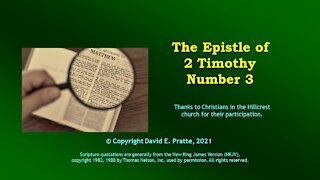 40:31
40:31
Video Bible Study by David E. Pratte
3 years agoVideo Bible Study: 2 Timothy - 3
291 -
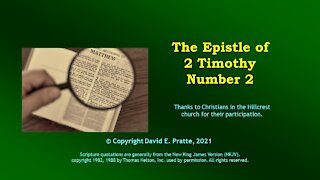 39:38
39:38
Video Bible Study by David E. Pratte
3 years agoVideo Bible Study: 2 Timothy 2
2876 -
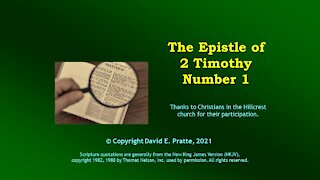 35:33
35:33
Video Bible Study by David E. Pratte
3 years agoVideo Bible Study: 2 Timothy 1
4531 -
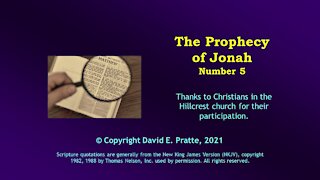 43:35
43:35
Video Bible Study by David E. Pratte
3 years agoVideo Bible Study: Book of Jonah - 5
239 -
 0:58
0:58
Christian TShirts Videos
3 years agoPsalms Bible Reference Mockup Video 5-17-2021
16 -
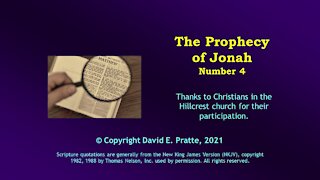 39:33
39:33
Video Bible Study by David E. Pratte
3 years agoVideo Bible Study: Book of Jonah - 4
245 -
 36:52
36:52
Video Bible Study by David E. Pratte
3 years agoVideo Bible Study: Book of Jonah - 3
310 -
 36:50
36:50
Video Bible Study by David E. Pratte
3 years agoVideo Bible Study: Book of Jonah - 2
261 -
 29:48
29:48
Video Bible Study by David E. Pratte
3 years agoVideo Bible Study: Book of Jonah - 1
562 -
 13:27
13:27
Video Bible Study by David E. Pratte
3 years agoVideo Bible Study: Book of Obadiah - 3
148